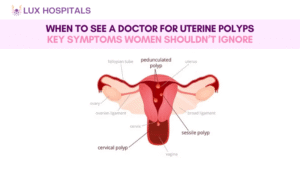Emotional and Psychological Impact of MTP

When it comes to healthcare, we often focus on physical well-being. But what about emotional healing? Medical Termination of Pregnancy (MTP) is a deeply personal decision, and while it’s a safe medical procedure, the impact of MTP goes far beyond just the physical aspect.
For many women, the decision to undergo an MTP comes after a lot of thought, confusion, and emotional conflict. Whether it’s due to medical reasons, unplanned pregnancy, or personal circumstances, it’s never a light decision. Let’s take a moment to talk about what often goes unspoken about the emotional and psychological effects of this journey.
Understanding the Emotional Response
Every woman’s experience is unique, and so is her emotional response. While some experience relief, others could experience grief, sadness, or depression. Over time, these emotions may coexist and evolve.
It’s completely normal to go through a range of emotions after an MTP. Hormonal changes, societal pressure, personal beliefs, and relationship dynamics can all influence how someone processes the experience.
Common Psychological Effects After MTP
Here are some common psychological responses women may face after undergoing an MTP:
- Relief: For many, especially those who made the decision after careful consideration, MTP can bring a sense of control and relief.
- Sadness or Grief: It’s okay to mourn. Even when the decision feels right, there can still be a sense of loss.
- Guilt or Shame: Cultural or religious beliefs may create internal conflict, leading to guilt or shame.
- Anxiety or Depression: In some cases, unresolved emotions may lead to anxiety, insomnia, or even depression if left unaddressed.
It’s important to know that these feelings don’t make you weak or wrong. They make you human.
Factors Influencing the Impact of MTP
Several factors can influence how a woman experiences the impact of MTP emotionally:
- Support system: It is a big difference to have someone to speak to. Whether it’s a friend, partner, or therapist, support can help ease the emotional burden.
- Reason for MTP: Whether it’s due to health risks, financial reasons, or lack of readiness, the reason can shape how a woman processes the experience.
- Past mental health history : Women with a history of depression or anxiety might be more vulnerable to emotional distress after MTP.
- Societal judgment : Social stigma or fear of being judged can add unnecessary pressure and emotional weight.
Healing and Coping
The emotional and psychological impact of MTP doesn’t have to be a silent struggle. Here’s how women can begin to heal:
- Talk about it : Open conversations with a trusted person or therapist can help release bottled-up emotions.
- Join support groups: Knowing you’re not alone can be powerful and comforting.
- Practice self-compassion: Be kind to yourself. It’s acceptable to not have all the answers at once since healing takes time.
- Seek professional help: If feelings of sadness or anxiety persist, reaching out to a mental health professional is a strong and healthy step.
Conclusion
The impact of MTP is layered—it touches the mind, heart, and body. It is acceptable to experience a range of emotions. There is no one “right” way to feel or way to get better. What matters most is that women are given the space, support, and compassion they deserve to process their experience in their own time and way. If you or someone you know is going through this journey, remember you are not alone, and help is always within reach.
Frequently Asked Questions
Yes, feeling emotional is completely normal. Everyone processes the experience differently, and all emotional responses are valid.
There is no set timeline some women recover quickly, while others may take weeks or months. Emotional healing is deeply personal.
Women may experience a mix of emotions including relief, sadness, guilt, or grief. These feelings can vary based on personal, cultural, or situational factors.
Psychological responses can be influenced by past mental health, support systems, societal stigma, and personal beliefs or reasons for abortion.
Talk to someone you trust or seek help from a mental health professional. You don’t have to navigate these feelings alone.
Offer a listening ear without judgment, validate their feelings, and encourage them to seek help if needed. Your presence can mean a lot.




















